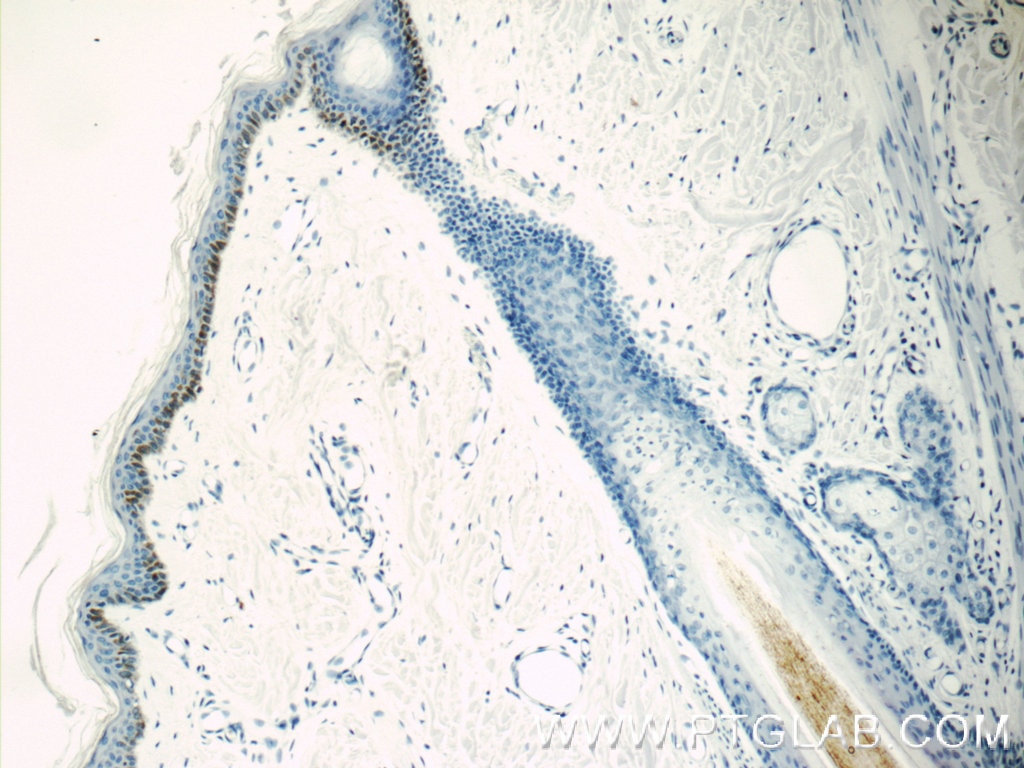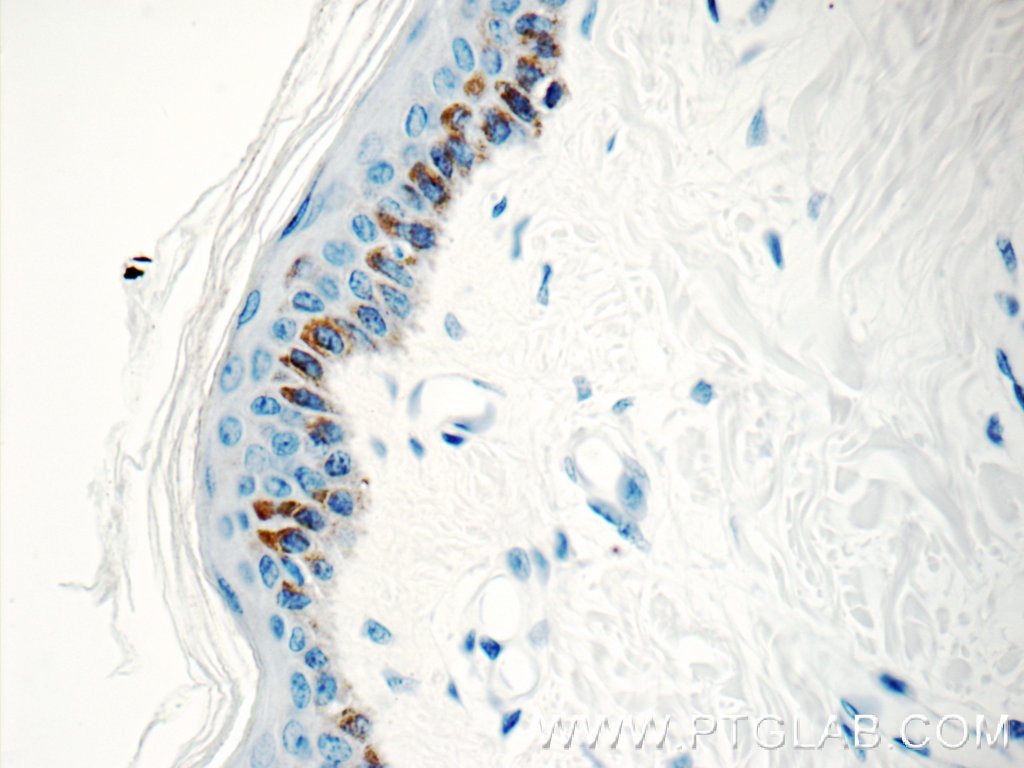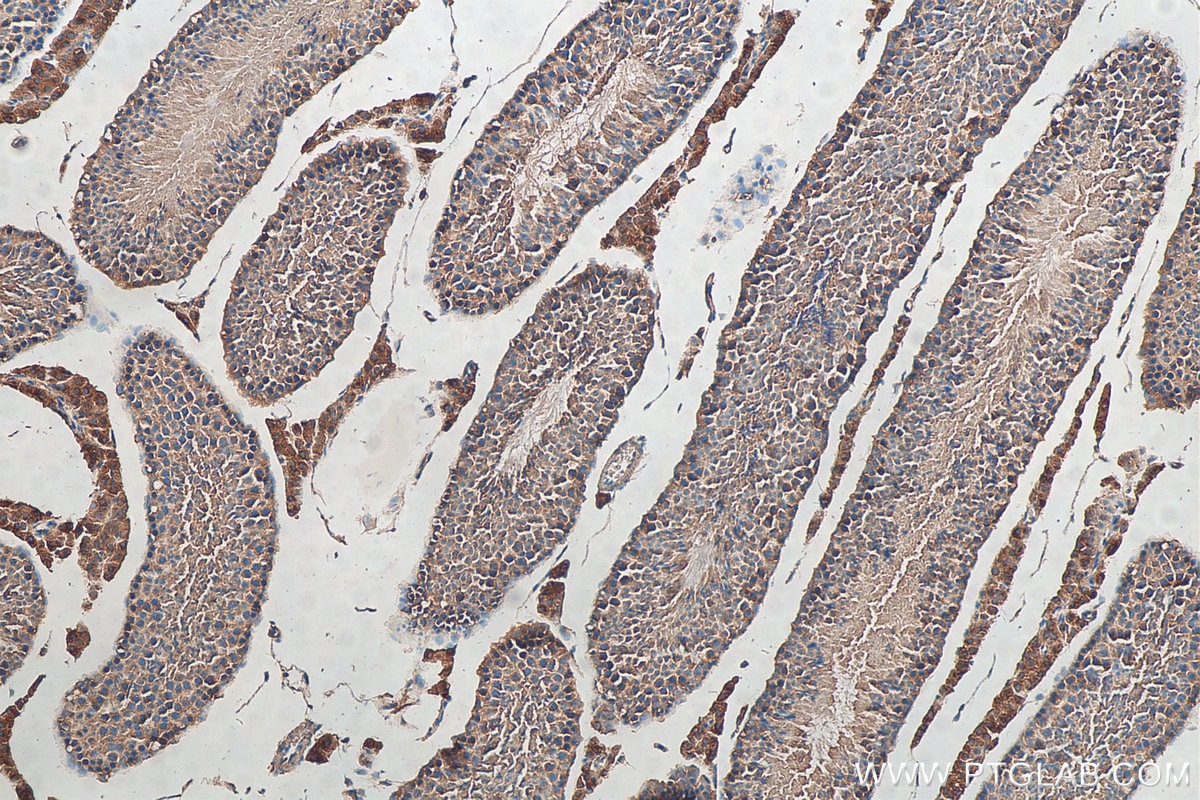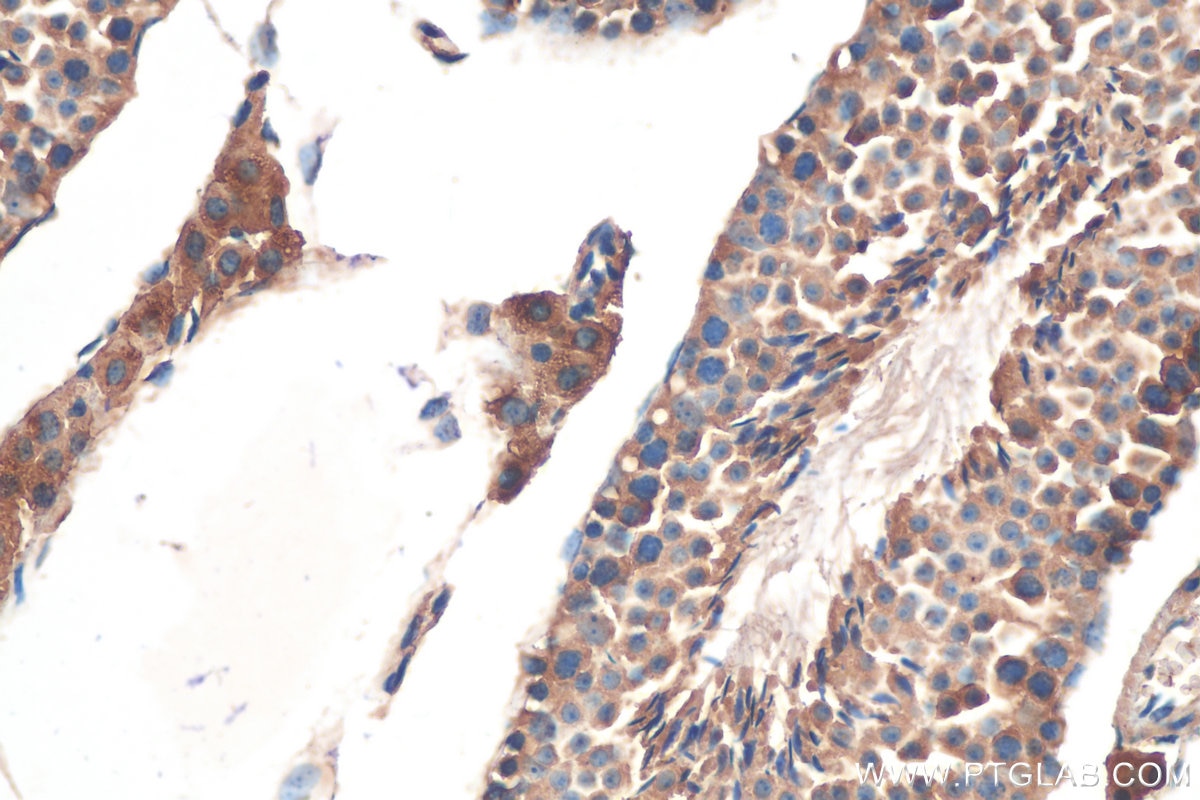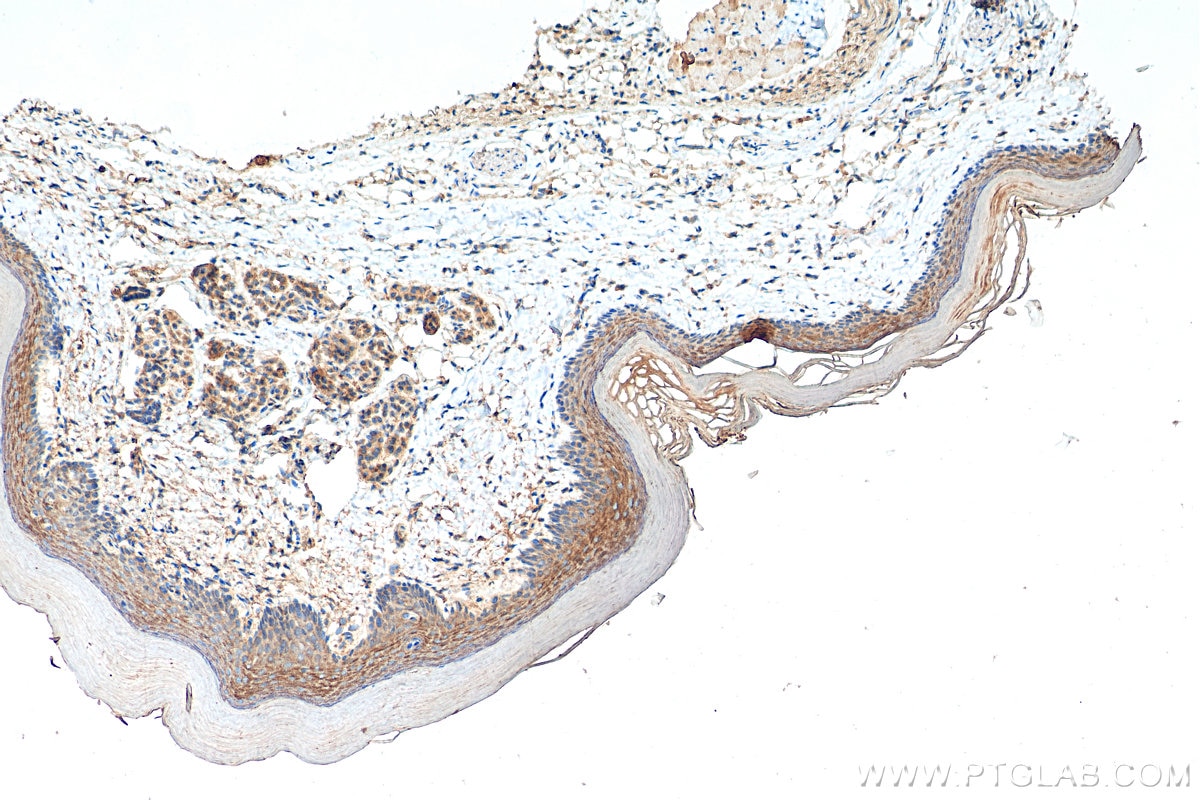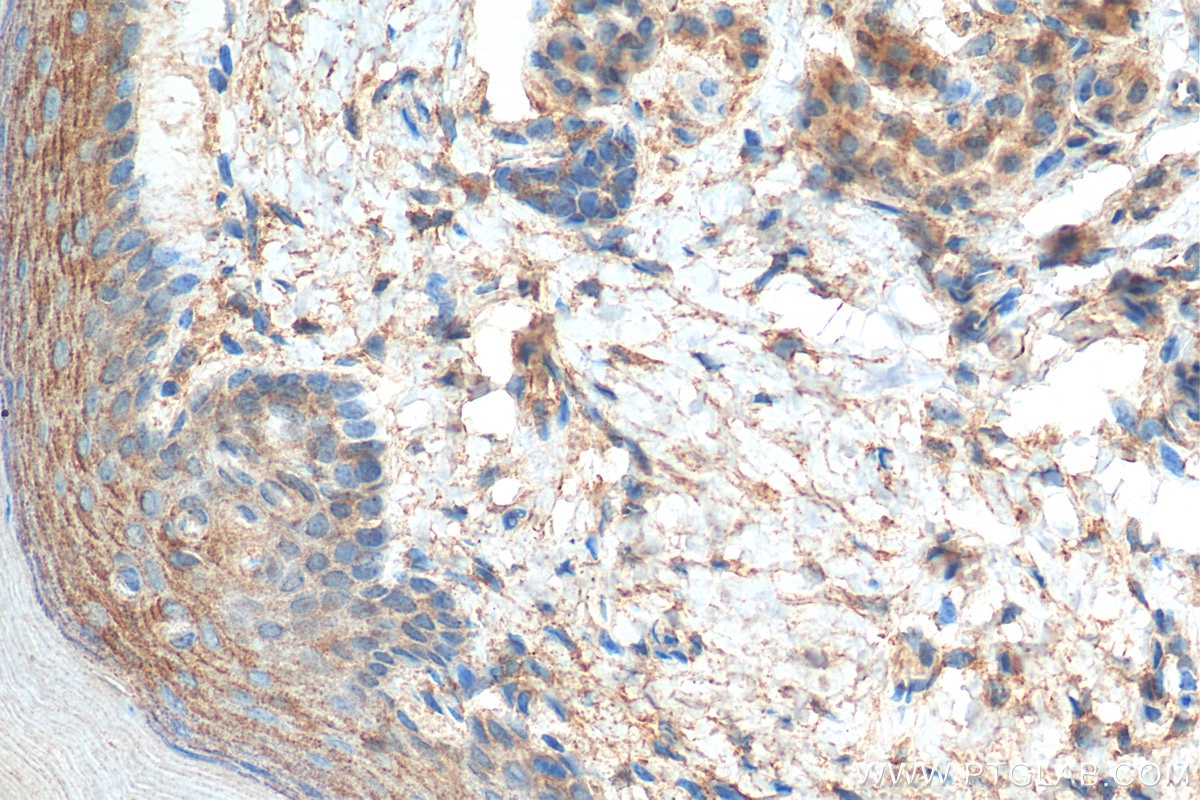Tested Applications
| Positive IHC detected in | human skin tissue, mouse skin tissue, mouse testis tissue Note: suggested antigen retrieval with TE buffer pH 9.0; (*) Alternatively, antigen retrieval may be performed with citrate buffer pH 6.0 |
Recommended dilution
| Application | Dilution |
|---|---|
| Immunohistochemistry (IHC) | IHC : 1:20-1:200 |
| It is recommended that this reagent should be titrated in each testing system to obtain optimal results. | |
| Sample-dependent, Check data in validation data gallery. | |
Published Applications
| WB | See 2 publications below |
| IHC | See 2 publications below |
| IF | See 1 publications below |
Product Information
10514-2-AP targets Kallikrein 5 in WB, IF, IHC, ELISA applications and shows reactivity with human, mouse samples.
| Tested Reactivity | human, mouse |
| Cited Reactivity | human |
| Host / Isotype | Rabbit / IgG |
| Class | Polyclonal |
| Type | Antibody |
| Immunogen |
CatNo: Ag0799 Product name: Recombinant human KLK5 protein Source: e coli.-derived, PGEX-4T Tag: GST Domain: 72-280 aa of BC008036 Sequence: DCDMHTQPWQAALLLRPNQLYCGAVLVHPQWLLTAAHCRKKVFRVRLGHYSLSPVYESGQQMFQGVKSIPHPGYSHPGHSNDLMLIKLNRRIRPTKDVRPINVSSHCPSAGTKCLVSGWGTTKSPQVHFPKVLQCLNISVLSQKRCEDAYPRQIDDTMFCAGDKAGRDSCQGDSGGPVVCNGSLQGLVSWGDYPCARPNRPGVYTNLCK Predict reactive species |
| Full Name | kallikrein-related peptidase 5 |
| Calculated Molecular Weight | 32 kDa |
| GenBank Accession Number | BC008036 |
| Gene Symbol | KLK5 |
| Gene ID (NCBI) | 25818 |
| RRID | AB_2134374 |
| Conjugate | Unconjugated |
| Form | Liquid |
| Purification Method | Antigen affinity purification |
| UNIPROT ID | Q9Y337 |
| Storage Buffer | PBS with 0.02% sodium azide and 50% glycerol, pH 7.3. |
| Storage Conditions | Store at -20°C. Stable for one year after shipment. Aliquoting is unnecessary for -20oC storage. 20ul sizes contain 0.1% BSA. |
Background Information
KLK5(Kallikrein-5) is also named as SCTE and belongs to the kallikrein subfamily. This protein is predicted to be a secreted serine protease, and the enzyme is found to have proteolytic activity. In serum and ascites fluid, the protein is present in two forms, one at a relatively lower molecular mass (around 50 kDa), and another one around 150-180 kDa and native KLK5 is highly glycosylated or that it may interact with the gel filtration column, leading to delayed retention(PMID:12873991). The activation of the enzyme has been shown to require cleavage of an arginine residue (Arg66-Ile67), suggesting that a trypsin-like serine protease may be involved in this process(PMID:15713679).
Protocols
| Product Specific Protocols | |
|---|---|
| IHC protocol for Kallikrein 5 antibody 10514-2-AP | Download protocol |
| Standard Protocols | |
|---|---|
| Click here to view our Standard Protocols |
Publications
| Species | Application | Title |
|---|---|---|
Cancer Biomark Salivary KLK5 and uPA are potential biomarkers for malignant transformation of OLK and OLP | ||
J Dermatol Sci Dichotomous effect of ultraviolet B on the expression of corneodesmosomal enzymes in human epidermal keratinocytes. | ||
Cell Death Dis Long noncoding RNA HEIH depletion depresses esophageal carcinoma cell progression by upregulating microRNA-185 and downregulating KLK5. |

